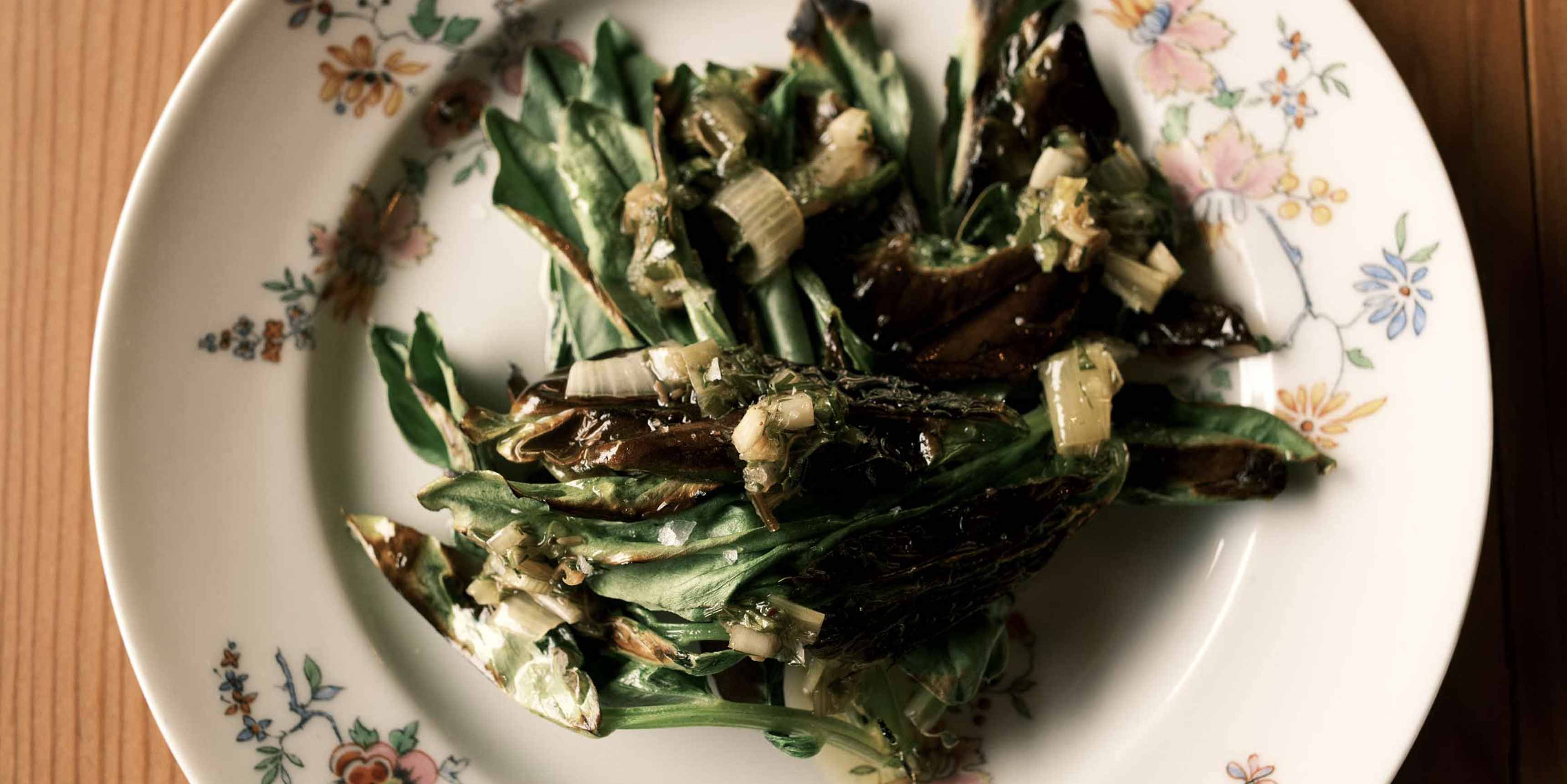


Sauce Ravigote
(sort of, but better?)
with Jason Barwikowski
When Renee Erickson from the Walrus and the Carpenter came here to cook dinner a few years ago, she had me make her lovage oil to use in aioli. It was one of those “holy shit” moments, because as a young cook, when you make herb aioli, you chop up some herbs and fold them in, and it doesn’t really taste that good. Then, maybe, you start pounding some herbs in a mortar and release the oil and it makes it better. But when you use an herb oil as the base, it makes the flavors so intense. I’ll mix some pickled things I’ve chopped up with a handful of whatever and a certain oil, and it turns something simple into a crazy, flavorful dish that would be difficult to create if you had to think it out. But when your pantry is stocked, it makes anything interesting. It’s all about the pantry.
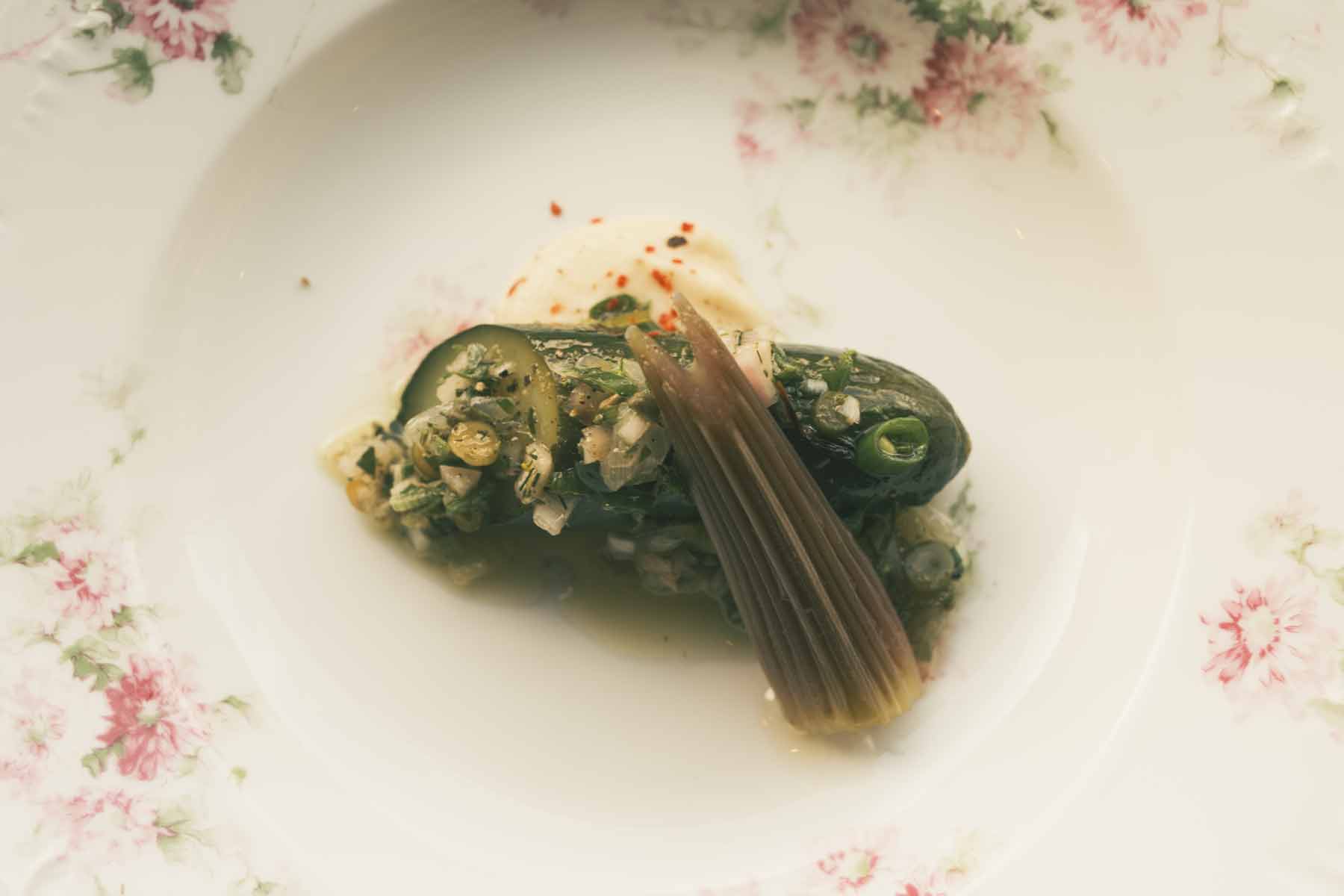

Recently, I’ve been using lovage oil (see recipe below) in ravigote. In its simplest form, ravigote is parsley, raw onion, caper, vinegar, andolive oil. In the late spring or early summer, the abundance of sweet herbs, fresh spring onions, and green garlic pushes the sauce toward something deeper, richer, more interesting.
To make it, oven roast (or better yet) grill a bunch of lightly seasoned small onions and their greens — plus any available stalks of green garlic — until they’re charred and soft.
While these are cooking, soak a small amount, like 1 – 2 Tablespoons of salt-packed capers in cool water. Stir them around and pour off the water, then refresh them with cool water once again. Reserve these for the moment.
Thinly slice another bunch of spring onions and tops. Place in a large bowl. Season lightly with salt, and dress with a good shot of quality sherry (or red) vinegar. Toss about. Let sit for several minutes to marinate.
When the cooked onion mix is cooled enough to handle, roughly chop and add to the raw. Drain off the capers and mince them a bit. Add to the bowl. Stir to combine and taste for salt. Adjust as desired.
Gather about 2 cups of gently packed fresh, sweet herb leaves (dill, basil, tarragon, lovage, and parsley all fit the description — and adding a bit of strong herbs, like oregano and thyme is a good balance. Mince some, thinly slice some, roughly chop some. Add this to the bowl. Stir and taste.
Add a hearty amount of vinegar if it’s to your liking. The sauce should be tangy, but not painful.
Completely cover the herb-and-onion mixture with 2/3 olive oil and 1/3 lovage oil. More oil or less oil is, again, dependent upon personal preference. Let this sit, covered, at room temperature for an hour before eating to blend the flavors. It’s delicious with almost anything. We’ve been pairing them with a range of spring vegetables, like fava tops or purple snow peas.
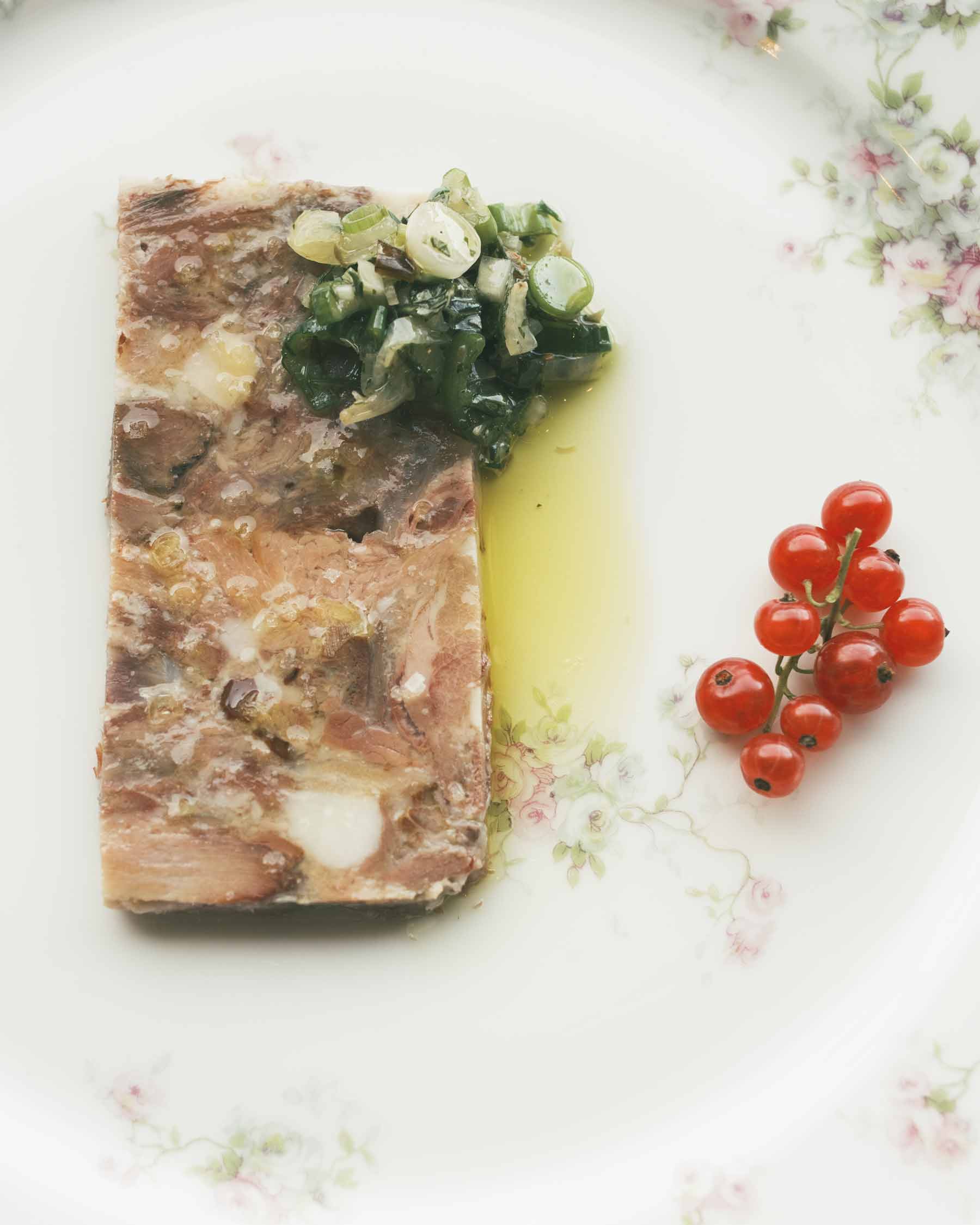
Tête de Cochon with Red Currants and Sauce Ravigote, served at the Wine Tavern to accompany Hiyu 2020 Halo.

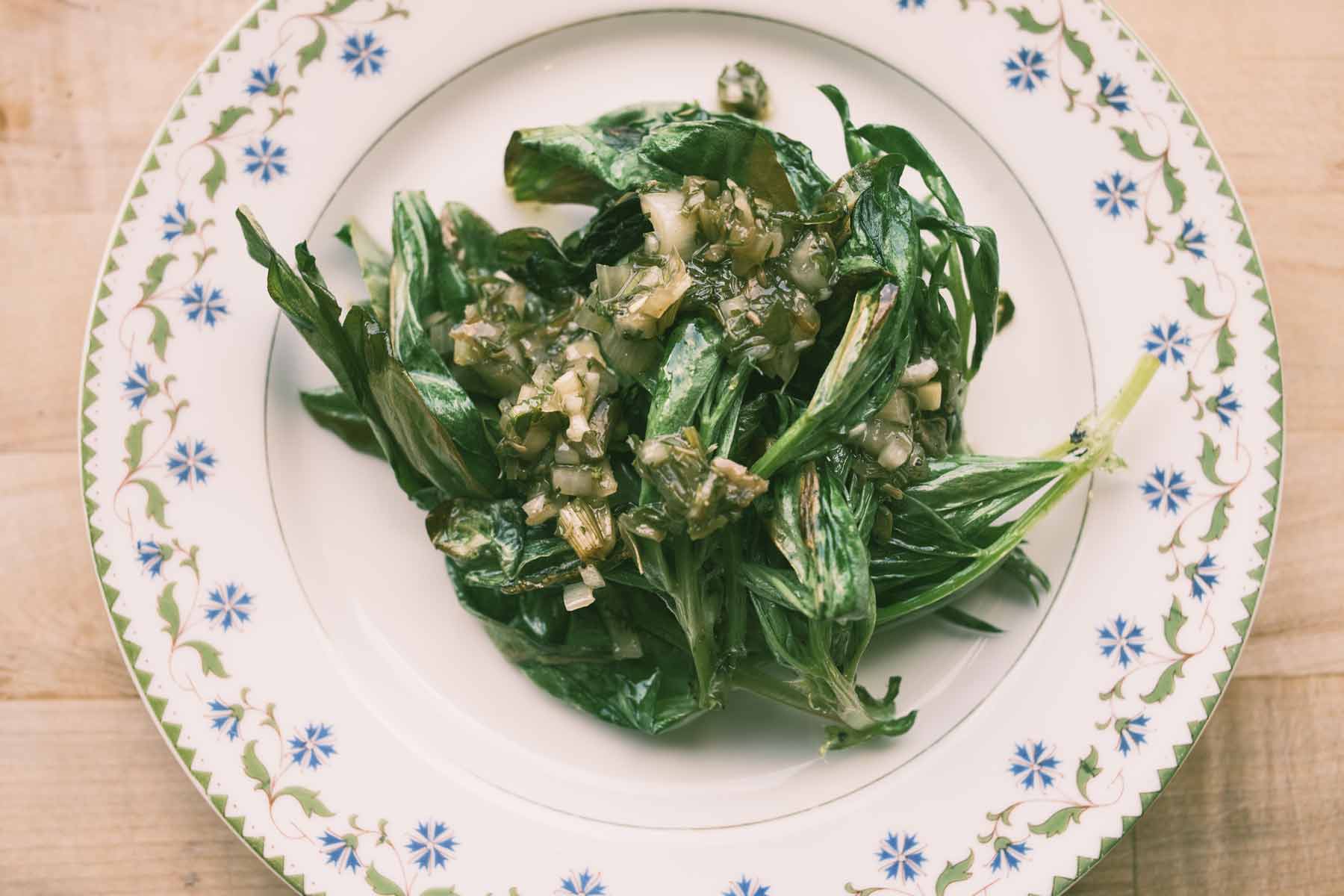
Fava Tops with Sauce Ravigote, served at the Wine Tavern as part of a meal featuring Peas with Ricotta and Mint, Cured Salmon with Cucumber, Cabbage with Tahini and Nasturtium, Cured and Smoked Leg of Pork Raised in the Vineyard with Lovage, and Griddled Cheese with Rhubarb.

Lovage (or any Sweet Herb) Oil
Lovage is a funny herb because it’s not super common. I hadn’t even seen it in past farm experiences until China started growing it here. It has a super intense celery flavor, and the leaves are really big. If you were to chop up one leaf and put it into a can of tuna salad, it would be more than enough.
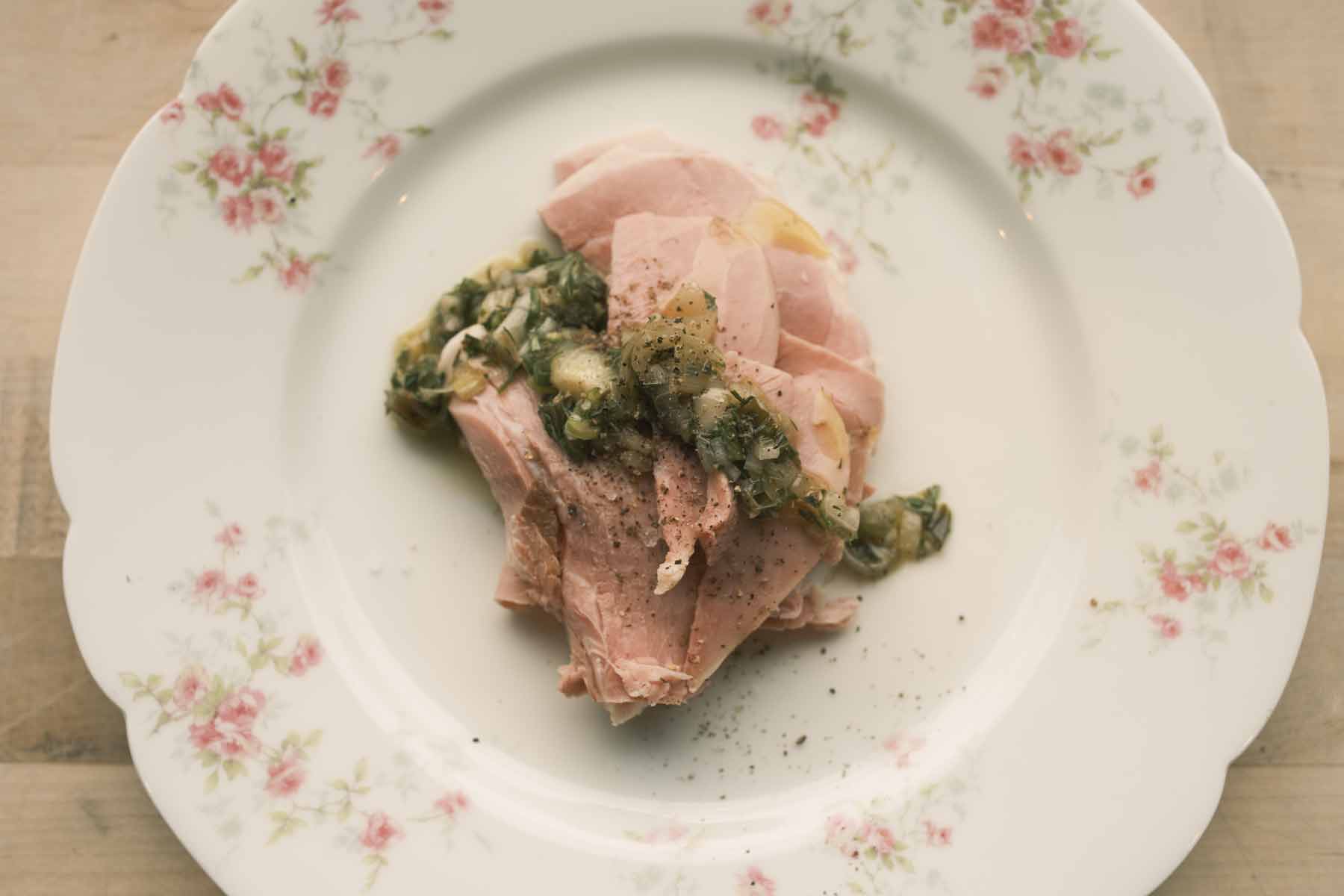



When you make herb oils, you need a good amount of the herb to not a ton of oil — and even though the lovage is intensely flavored, you still need a good amount. With a standard Vita-Prep mixer, you put like ½ – ¾ cup oil and then pack it full of leaves (I’ve never really weighed it out). Then you blend it until it gets warm, about 30 seconds after it all gets sucked down into the oil.
After, you put the blended mixture into a small strainer with cheesecloth, preferably overnight in the refrigerator. You can fold the cheesecloth over the top and put a light weight on it, but you’re not trying to extract anything out of it except the oil, because the vegetal matter will add a layer of material to the oil that’s sort of sludgy and slimy. It’s not bad; it’s almost like a vinegar mother, but it will do that. In the morning, the oil’s ready. If you keep it in the refrigerator, it’ll last for a while. It’s quite simple.

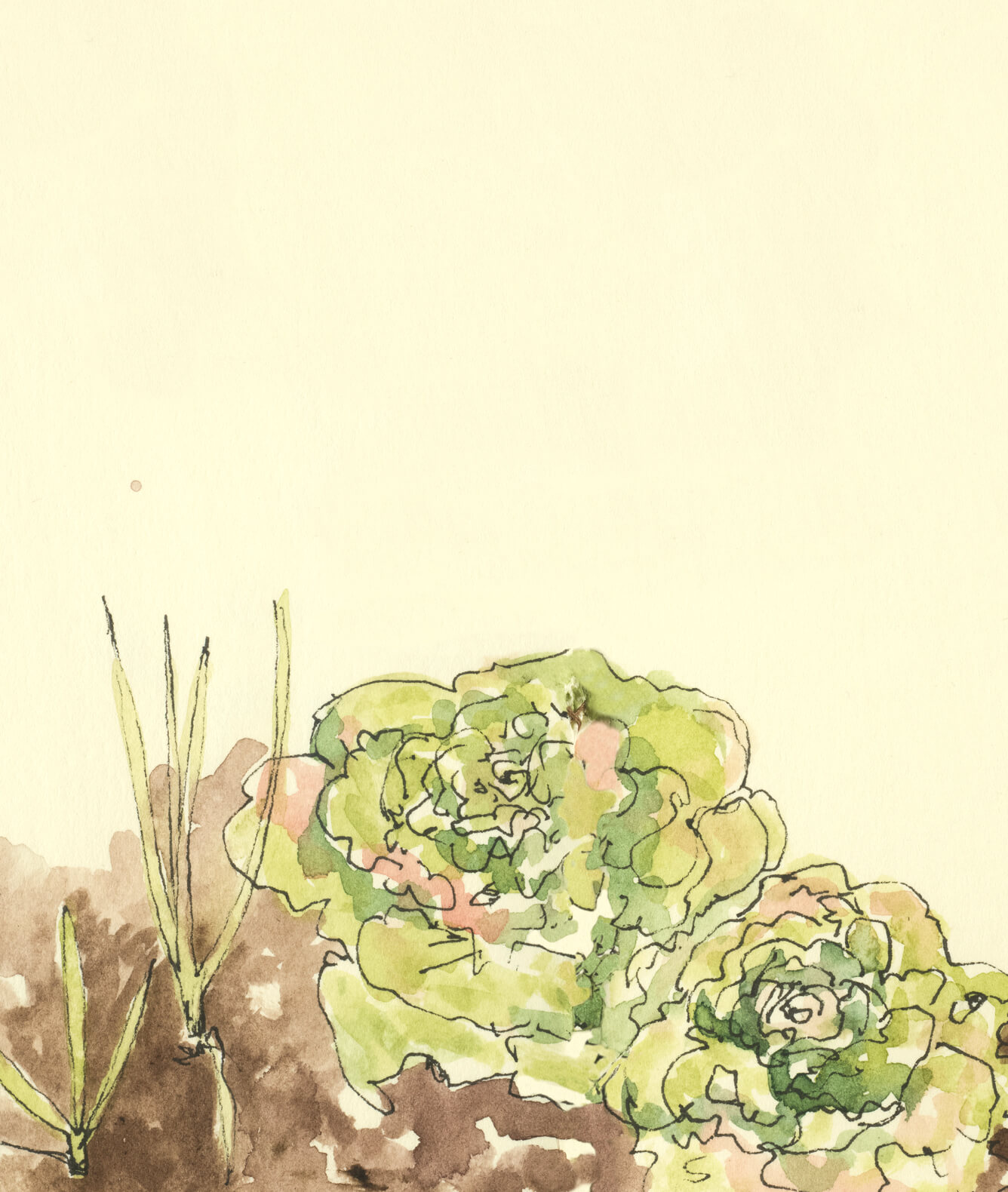
In the garden at Hiyu

Tales



